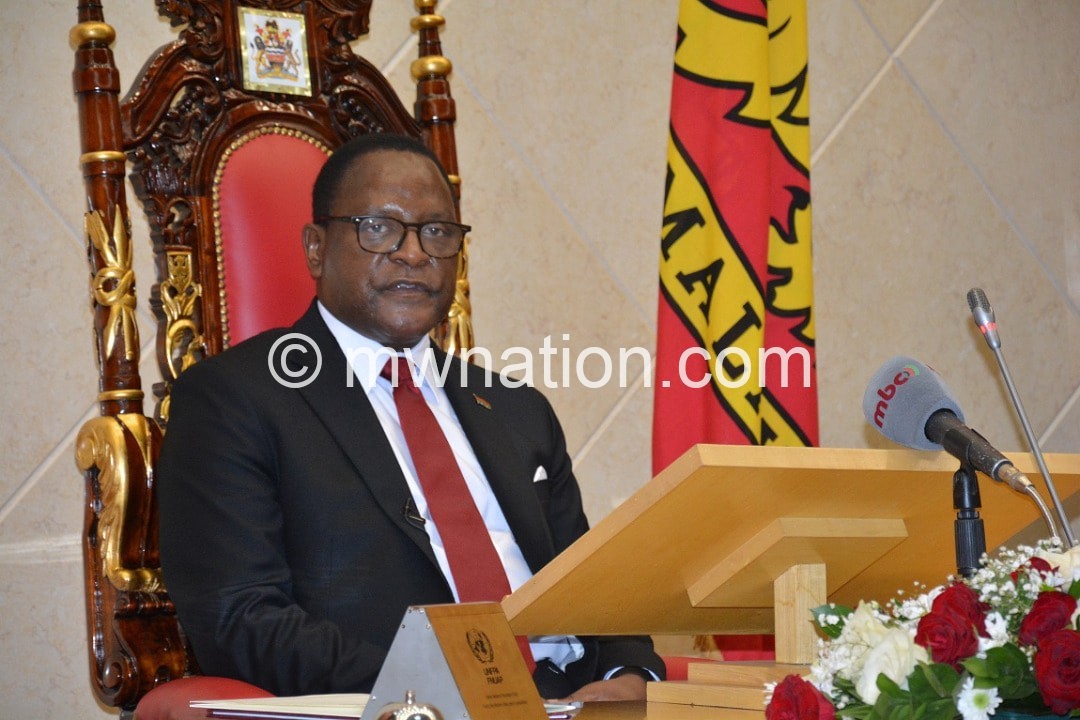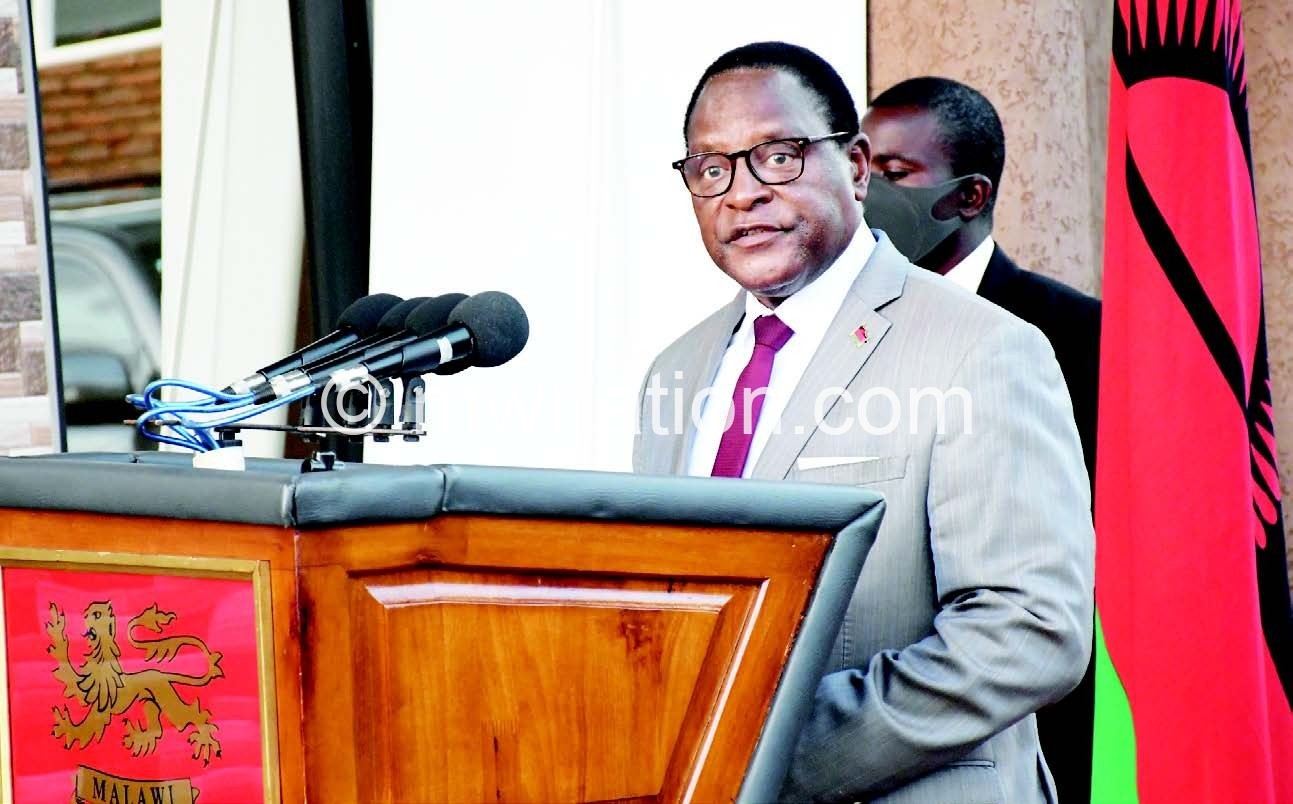APM should not throw in the towel on power blackouts
If you can read the body language, APM left the joint Electricity Supply Corporation of Malawi (Escom) and Electricity Generation Company Limited (Egenco) board meeting held at Escom offices in Blantyre last week looking rather helpless.
His body language during the media briefing that followed and was televised on State broadcaster showed a man who had given up. Clearly, I could see that there is little to nothing that APM can do about the current power shortages that have turned our lives upside down.
In fact, APM conceded defeat in his statement later: “I ask you all to be patient. We are almost there. I think I can see light at the end of the tunnel. With patience and hard work, I can assure you that within the next year or so, most of the blackouts will be behind us.”
Be patient? Electricity blackouts will be a thing of the past in 2019? In general election year? What does that mean for us in the streets from now onwards?
There is no answer for now.
According to Escom CEO Evelyn Mwapasa, current demand is 300 megawatts (MW), but Egenco is giving them (Escom) 160 megawatts (MW) for nationwide distribution.
“Of the 160 megawatts that is available, there are priority institutions such as referral hospitals and water boards that we do not switch off electricity [supply to]. They collectively consume about 70 megawatts out of the 160 megawatts. So, we have about 90 megawatts to supply to domestic and industrial customers,” she said.
Brace for tough times good people. From now until 2019, Malawians will have to share between 90 to 100 megawatts unless water levels in Lake Malawi go up. Clearly there is no plan B if there is a drought. No wonder the Malawi Confederation of Chambers of Commerce and Industry (MCCCI)—also known as the voice of the private sector—is livid.
The chamber says since Escom rolled out its extended load shedding local industries are producing at around 40 percent of their optimal capacity.
Word on the street is that, reduced production means reduced products for sale resulting into reduced turnover. Reduced production with the same fixed costs, and reduced revenues, often drive firms to restructure and scale down on staff.
Some firms even relocate to other countries to survive. If this is not a worrying and serious issue that needs to be addressed urgently, then what will APM ever address urgently?
We on the streets believe that for the manufacturing industry to survive and contribute to economic growth and government projected growth of around 5.2 percent this year, it is critical to have power, all day every day.
We on the streets also fault APM for allowing the twins: Escom and Egenco to go ahead with the purchase of generators, which APM said will be in the country by by December as these sources of energy are a waste of resources and unsustainable.
In fact, the cost of running the gensets will mean Malawians have to pay through the nose to access electricity. It does not need a rocket scientist to explain that power generators or gensets are far more expensive and unsustainable over long periods.
Power tariff hikes will mean businesses with smaller margins suffer even more.
Word on the street is that, APM should cross the borders and re-negotiate the power interconnection deal with his Mozambican counterpart Filipe Nyusi.
A Power Interconnection Project with Mozambique will be the most realistic and sustainable solution to current power crisis. It’s sad that this project was halted by APM’s brother, the late Bingu wa Mutharika, who viewed it as an expensive venture that would not benefit Malawi in the long run.
Mr. President, Malawians need power now, an interconnection deal is the way to go. Bury the hatchet with Mozambique and call Nyusi now. He is just a phone call away.





